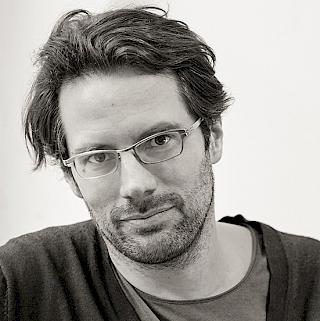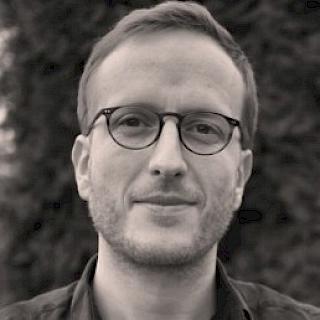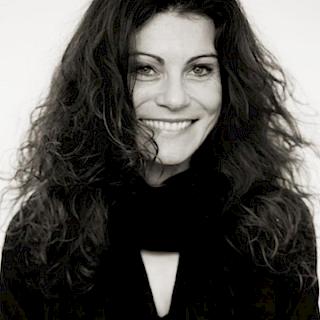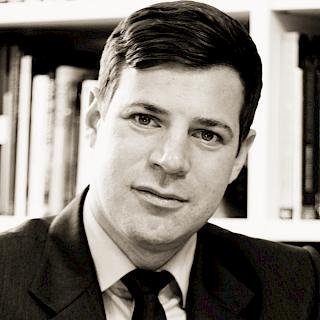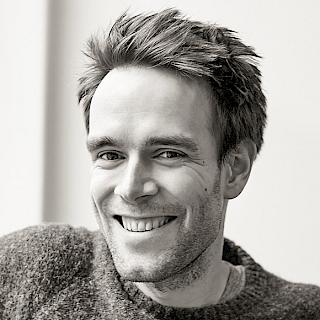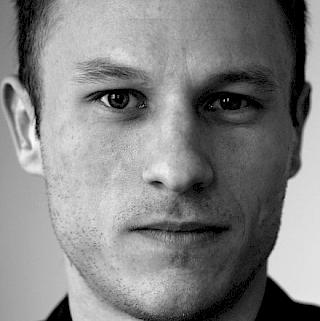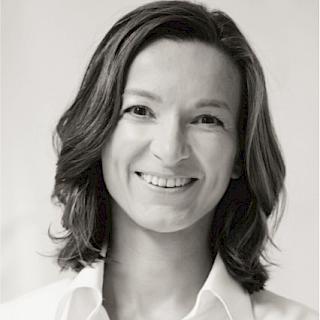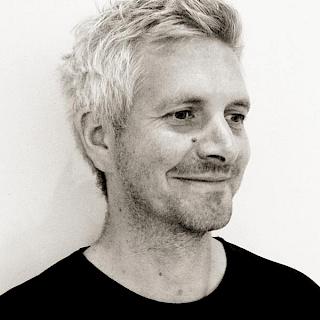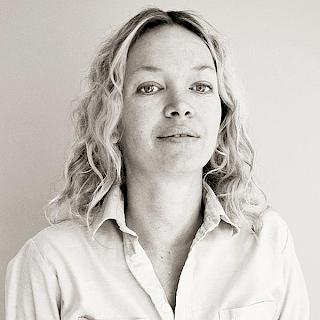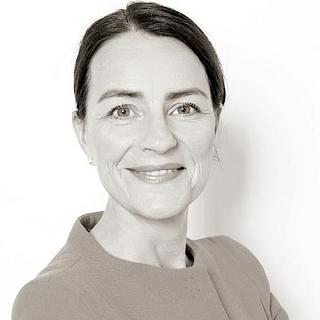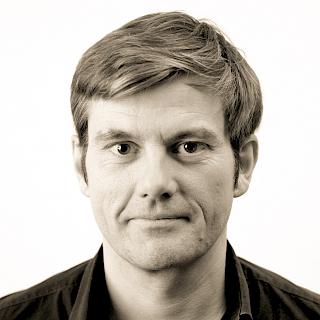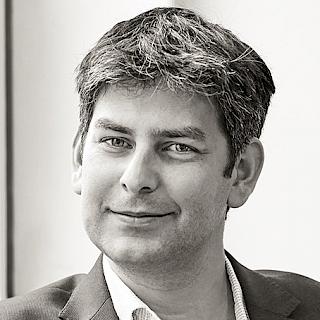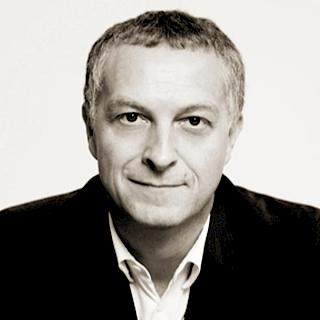Das 18te Kamel & Komplizen
Mission
As a »Society for Digital and Social Transformation« we create value for our clients and their stakeholders in an environment that is determined by an ever faster pace of technological, economic and societal change. We focus on profit as well as purpose for the next phase of a social and digital economy.
To achieve this goal we have created a new breed organisation with elements of a Think Tank, Strategy Advisor, Academy, Innovation Boutique, Data Analyst and HR-Expert. We are a mix of renowned scientists and experienced practitioners, creating knowledge and implementing it to effect in organisations. Like our namesake, the 18th Camel, we aim to be part of creative problem solving.
Talk to us for all issues around the Identity of your organisation, its Intelligence and Interactions. We will, in a collaborative process, define its purpose, constitution and its relationship towards all stakeholders, communities and societies. We will derive strategies for business model innovation, marketing and communication, organisational development and HR as well as provide practical support and supervision in implementing theses strategies. We aim at making sense and creating value.
1)
We are centred around our clients and their challenges. And we’re here to provide solutions. Sounds like a given? It’s not. Most consultants act like the proverbial hammer that sees a nail in every problem. We’re not jumping into quick assumptions and standardized procedures, disguised as »sector experience«. As scientists we analyse the less obvious and see bigger contexts. As practitioners we leave the PowerPoint realm and transform our solutions into competitive advantages. And we’re ready to take an entrepreneurial position and interest!
2)
We’re a Sozietät. That’s one unique German word for a joint practice, a partnership like in a law firm. Besides from one of the founders being a lawyer, this is the perfect structure for our way of working: single partners closely involved with our clients challenges, backed and complemented by a range of competent partners and associates. We demonstrate diversity not in terms of hierarchical levels but in terms of backgrounds: economists, architects, brand strategists, data experts, writers, HR-experts, social entrepreneurs … The difference is that we’ve been there. In life, not in a project.
We work inter-disciplinary and inter-sectorally. Next to the diversity of our associates, we’re also constantly combining a scientific and a practical perspective. As a team we have a strong academic background, with roughly half of us being Professors and teaching at Universities in Germany, France, Austria and Switzerland. When so often the world experiences disruptions only because scientific findings have not been translated into economic and social practice, we consider this a valuable competitive advantage for our clients.
3)
Our playground is digital transformation as well as social transformation. Because the two are inseparable, drive and influence each other. Technology drives change in societies and brings new opportunities. But markets are fundamentally depending on human behaviour, values and judgements. Economy is applied social science and we strive to leverage technology from opportunistic opportunity to competitive advantage by relating it to social insights and corporate identities.
Social Transformation certainly drives us to deal closely with contemporary value sets, with concepts of sustainability and corporate responsibility. Not because it’s fashionable, romantic or idealistic. But because we believe that we can align diverse interests, existing in joint communities and societies, for the benefit of corporations and their stakeholders alike.
We’re a diverse group from all walks of life, united in our hunger for enlightment and results. Our approach towards science hence goes beyond mere reflection. We are entrepreneurs at heart and strive for action.
Our uniting culture is diversity. Two of us are never alike, we cultivate the antithesis and intellectual combat.
We love complexity and embrace it in our work. An interdisciplinary team of multi-facetted persons and with a love for the perspective not (yet) taken — psychological, sociological, political, economical; systemic and random: that’s the complexity it needs to match todays challenges.
We’re not defining our identity as an elite that has no connections to the markets and societies we’re dealing with. We love being entangled in our social context, love to write stories of fulfilment, as joint authors of the future.
This future is not just generating profit as the oxygen of business, but adding consciousness and sense to strive for »purpose profits« beyond a mere existence.
We are committed to the idea of social innovation. This theory, first conceived by social scientist William Fielding Ogburn in the 1920s, recognizes technology as the primary engine of progress. But more importantly, his theory acknowledges that social resonance and response actually determines the developments for individuals and societies. The entwined nature of digital and social transformation, is a principle of stellar relevance for todays world.
For institutions and corporations today, this approach moves beyond mere opportunities to constitute real competitive advantages from social relevance. These advantages will become effective via sound strategies for HR, Innovation, Organisational Development, Marketing etc.
We aim to be working and sense-making with our clients for a »Future Perfect«. And we are happy to be judged and paid by success only — in an entrepreneurial role.
In recent month we had the pleasure to work with
Abury Foundation, Audi, BASF, Caritas, Daimler, Design Offices, Deutsche Lufthansa, Edeka, Otto Group, WÜRTH Elektronik and others.
(Please excuse, that we’re not disclosing details of our clients projects. We will provide references on request.)
Our ideal client is a person or organisation which thinks responsibly and takes a long-term perspective. The German word ‘enkelfähig’ (a “grandchild sustainability”) puts this ideal into the metaphor of being able to address needs of generations to come. We love to work with clients who share our passion for curiosity and complexity, organisations who see us as partners in writing the next chapter of their corporate biography.
Our experience covers all sectors from science to publishing, from foundations to government and covers the alphabet of corporations from Altana, Audi, Beiersdorf, BMW to Volkswagen, Zeppelin and ZF.
»For a hammer, the whole world looks like a nail.«
Proverb, attributed to many thinkers.
»The problem is defined by the solution we offer.«
Methodology, attributed to many consultants.
We believe in the uniqueness of every situation and we’re willing to credit every situation with a tailored approach. The diversity of our team results in many sources of knowledge, we have methodologies and experiences in abundance. Instead of boring you with lengthy charts let’s just say our team has written a total of 43 books and countless other scientific publications.
Camels live happily in groups and we also love to work together. A single member of our team will always enrich your thinking and will be a catalyst for solutions. But with two or more of us, different personalities will bring a dialectic energy to the table that will create progress in every sense.
The world and certainly most of its challenges today are dazzling complexities, open contradictions, hidden interdependencies and stimulating paradoxes. Our namesake, the story of the 18th Camel, is such a paradox, an illustration of impossible possibilities, of creative problem-solving that fascinates us.
The story is told of a father who left 17 camels as the inheritance for his three sons. When the father passed away, his sons opened up the will. It stated that the eldest son should get half of 17 camels while the middle son should be given one third. The youngest son should be given one ninth of the 17 camels.
The sons were frustrated and confused. “It isn’t possible to divide 17 in half, or by three, or by nine!”. In the midst of their depression, a wise stranger came along on a camel. He offered assistance and listened patiently about the will, then reflected for some time.
He then said: “To ease your trouble I will give you my camel!” and of now 18 camels he gave the eldest son half, that’s nine camels. The Second son got a third, that’s six, and the youngest he gave 2 camels, that’s a ninth. After fulfilling the deceased fathers testament to his sons with 17 Camels, they thankfully gave the 18th back to him and he continued his journey through the desert.
This story beautifully portrays how to contribute without consuming yourself, how to enable and empower with nothing more then creativity applied. It is our constant reminder to ask ourselves for whom we can be the 18th camel today.
People
We prefer to work as a team, but at least in pairs. Because somehow transformation is also double-edged and for clear solutions it needs two - like with Tango. See for yourself which partners you want to work with:
Prof Dr Stephan A Jansen
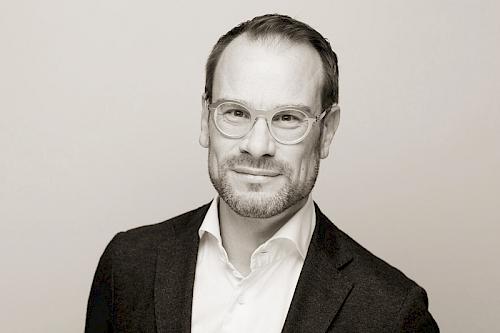
»As an educational romanticist and social scientist, I have learned that effective knowledge and stimulating education are fresh water and cooling air in desert times of social transformation - most notably in caravans of creatives.«
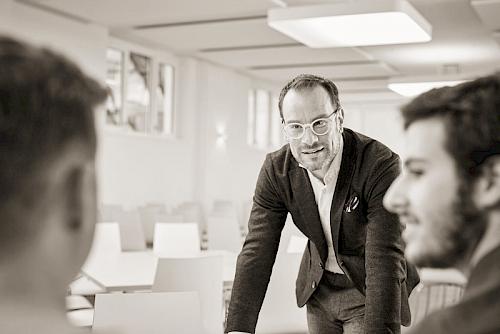
Stephan A. Jansen is a scientist, entrepreneur and consultant. After more than 20 years of research, education, entrepreneurship and founding a reknowned university he is looking for the positive infections of transformative knowledge and is consequently co-founder of the 18th Camel. Some believe that his middle initial stands for abundance, given his infinite hunger for the big challenges.
Peter John Mahrenholz
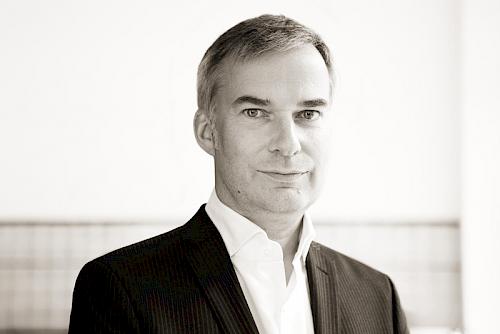
»Let's not just chase the opportunistic, but build sustainable competitive advantage from our own identity!«
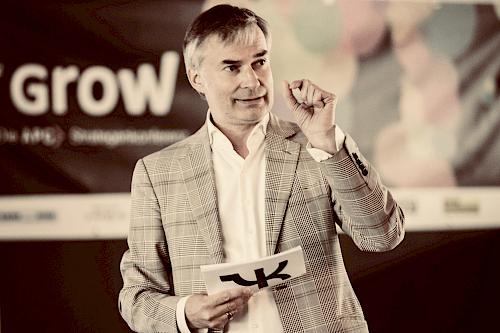
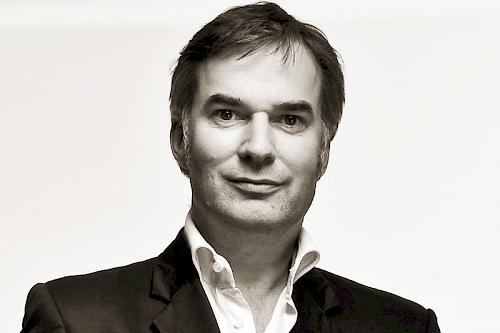
Peter John Mahrenholz comes with a degree in law, expertise in corporate identities and a love for sociology. After more than 25 years in strategic marketing, he continues to be fascinated by individual constitutions and collective relationships. He is co-founder of the 18th Camel out of a longing to connect perspectives and thus unleash impact that marketing alone cannot.
The magazine ODO — An Oasis of Orientientation
This will be our source of wisdom, a collection of thinking, insight and cognizance of likeminded people and ourselves. We’re currently building a separate magazine site for ODO, please leave your Email (at the bottom of this page!) so that we can alert you once we’re ready. (And feel free to browse through a couple of mostly German articles we have collected here!)
Embracing curiosity: 20 questions from our clients, partners and accomplices to the 18th camel.
Questions lead. Questions often lead to questions. Questions lead to conversations. Successful markets are successful conversations - unquestionably. Questionable questions compiled by the 18th camel - with long-term responsibility, without quick answers.
1
Isn't disruption also an excuse for slow observation of evolution and adaptation -and may the surprise be predictable for certain organizations?
2
How do we observe our organizational assets of self-observation, organizational, market and social observation - and how often and with whom? How do we achieve a more complex capacity for perception and forecasting?
3
Do we as an organization have a sense of possibility in the sense of Robert Musil - or do we save that realistically? And how do we see our possible futures - today?
4
Why are we here? What holds our strategy together in our innermost being and gives our actions a community reference in position and movement?
5
What kind of innovation corresponds to our authenticity of biography and tradition and is therefore competently surprisingly different from the competition? And how do we tell that story?
6
How can we build a polyvalent innovation regime, i.e. an innovation of innovation management - for systemic solutions from technological, digital and social innovations?
7
How do we deal with digitization - in products as well as production, in sales as well as in development, in work and processing - in an emotionally appropriate way? And what difference do we make afterwards?
8
What can digital business model innovations look like when we have been so successful in analog? Peripheral, central, hierarchical or in discussion and foundation with other industries?
9
What does future of work and leadership look like in our organization - if algorithmization has significantly influenced both levels? How does artificial and human intelligence become tolerable and productive for humans? And what ethical responsibility do we have today in HR work and education?
10
How do we deal with the "moralization of markets and management" and remain socially wise plus economically intergenerational - beyond Corporate Social Responsibility and all fashion?
11
If the abnormality is the new normality: How do we master the expectability of unexpected crisis and turnaround situations as well as leadership and ownership transitions?
12
How do we become more agile, more collaborative, more innovative and yet remain highly reliable, transparent and stable? What do these contradictory organizational designs look like - internally and externally? How do we manage the simultaneity of different designs and speeds?
13
If we no longer want to bear the risks of research and standards alone and can no longer develop new, more complex, systemic solutions alone: How can we as an organization improve the ability to relate to the unrelated?
14
Which story do we actually have, which one do we tell about ourselves and which one is actually told about us? How do we communicate honestly and consistently in capital, labour, procurement, product and reputation markets?
15
How can we effectively penetrate the highly fragmented media landscape with our strategic themes? Which positions do we take and how can we communicate them — even beyond a mere campaign logic — on which platforms?
16
Are we convinced by our organizational self-criticism - or have we been convinced for too long? And what does that have to do with reflexive controlling, which would be more than just "painting by numbers"?
17
Why is community reference to entrepreneurial action often seen as costly and complex rather than an opportunity for more relevant, stronger business models and higher profitability?
18
Will the societies affected by the impact of digitalization overcome the loss of old orders and develop a new "progressive humanism" that puts technology at the service of communities?
19
How do we solve the fundamental conflict between sustainability and profitability? Or is there no such conflict in the end?
20
What's the one question we have forgotten that makes one forget all the others?
Transformation: Crash
Transformation fails for timidity and lack of focus. Success comes from understanding the macro context and your identity.
Read moreWieso Frauen weniger führen wollen als Männer
Das vieldiskutierte Thema Frauen und Führungsverantwortung - hier mit besonderem Blick auf die Generation Y.
Read moreDie Weltverbesserer - Silicon Valley oder Europa?
Ob im Silicon Valley oder in Europa – auf einmal wollen alle nicht mehr nur Geschäfte machen, sie wollen "gut" dabei sein; die Welt retten. Und doch scheinen Welten zu liegen zwischen den jeweiligen Ansätzen zur Weiterentwicklung des nächsten Kapitalismus.
Read moreEmpathische Robotik und Ethik der AI
Stephan A. Jansen, Redner bei der internationalen Zukunftskonferenz "nextM" in Wien, über das Potenzial und die unternehmerischen wie gesellschaftlichen Auswirkungen von künstlicher Intelligenz – und warum es dabei ein starkes ethisches Bewusstsein braucht. Ein Interview mit HORIZONT.
Read moreDas Gesellschaftspiel des Guten.
Seit 1348 haben wir so etwas wie ein Sozialstaat. Und seit dem spielen wir sozialinnovatorisch. Aktuell wieder einmal: Neue Spieler, Strategien, Einsätze und neues Spiel um die Spielregeln selbst. Ein Spielbericht über Aufstellung, Arbeitsteilung und Legitimitäten.
Read moreCompetence
We centre our work on three areas: Identity, Intelligence, Interaction. All three do overlap and influence each other, but nonetheless they provide focus and help to define an ingoing perspective.
IDENTITY deals with the heart and soul of your organisation. Why does it exist? What it its role in the world? These questions may sound slightly too far-fetched or esoteric, in particular for determined businesspeople. But clarity about your identity gives you a complete strategic guideline for all aspects of your business. Please click »Identity & Purpose« below for more details.
INTELLIGENCE means the internal capability and agility of an organisation to learn, to adapt and to grow. We talk about »HR Management« and »Development of Organisational Design« as well as more exotic perspectives like the ability with regards to »Corporate Cognition«. Have a look!
INTERACTION marks all fields of external relationships. This encompasses our communication-centred work in »Position and Platforms« as well as »Business Model Innovation«. But Interaction goes beyond market and client relationships into any relationship to external stakeholders including Investor Relations and Governmental Affaires.
- The JesterMore
»We need an independent impulse to assess ourselves beyond our internal beliefs and structures!«
During the middle ages the Jester had the privilege of speaking the truth to a royal ruler. We love the Jester as embodiment of not only creativity but also honesty and independence.
- Corporate Cognition AnalysisMore
»In todays disruptive environment we need to understand changes and incorporate them into our strategies – but our many experts seem to be blind!«
Disruption has become a norm. It becomes mandatory for organizations to develop the skills and structures necessary to fully understand the environment they’re operating in.
- Identity & PurposeMore
»We need to realize which innate idea keeps out strategy together and gives our actions clear direction.«
The What, How and Why of corporate action needs a clear compass, guiding and simultaneously sharpening strategies, regardless if in marketing, innovation, HR or any other.
- Positions & PlatformsMore
“In an exploding media landscape and with ever more hypertargeted messages we have to ensure efficient cut-through of our strategic positions.”
Providing a joint framework for strategic planning of communication and total corporate and brand behaviour, linked into a clear purpose understanding to ensure maximum effectiveness.
- Berlin Strategy LabMore
»In times of fast-paced transformation I cannot rely on given strategies and procedures to elevate my corporate game.«
Determining where change will have the highest impact for building a futureproof organisation and competitive advantages.
- Business Model InnovationMore
“We have to transform our R&D-logic into a new regime, that creates corporate value through competitive business models.”
Delivering a clear framework to make innovation manageable.
- Post Merger Integration ManagementMore
»How can a merger make sense beyond its economies of scale by adding value to our competitive position and by strengthening and evolving our culture and identity meaningful to our stakeholders.«
- Post Digital HR ManagementMore
“We need to find new HR strategies that deal with the future of automatisation and Artificial Intelligence, helping us to find, develop and keep the right talent!”
Managing training programs, diversity and inclusion strategies etc. with innovative angles like Intergenerational Qualification or Corporate Health - and with the implications for business models.
- Organisational DesignMore
“We need to upgrade our organisation to become agile and innovative in a framework of compliance and dependability.”
Analyzing organisational designs regarding relationships to markets and stakeholders, designing prototypes, implementing agile management tools and establishing governance systems.
Contact
In times of social networks we experience a change from relationship to contact. We would like to turn it around: From a first contact to an effective relationship.
Don't hesitate to get in touch. We love to think, to learn, to discuss and generally to satisfy our curiosity.
Das 18te Kamel & Komplizen
Prof Dr Stephan A Jansen
Managing Partner
Kurfürstendamm 132
D-10711 Berlin
stephan.jansen@18teskamel.de
Das 18te Kamel & Komplizen
Peter John Mahrenholz
Managing Partner
Isestrasse 59
D-20149 Hamburg
pj.mahrenholz@18teskamel.de
+49 173-233 86 37
Prof. Dr. Stephan A. Jansen
Stephan A. Jansen (*12.06.1971) is a scientist, entrepreneur and consultant. After more than 20 years of research, education, entrepreneurship and founding a reknowned university he is looking for the positive infections of transformative knowledge and is consequently co-founder of the 18th Camel. Some believe that his middle initial stands for abundance, given his infinite hunger for the big challenges.
Actuals & Activities
In addition to his partner role, he holds a professor for management, innovation and financing as well as the leadership of the "Center for Philanthropy & Civil Society | PhiCS" at the Karlshochschule in Karlsruhe. Since 1999 Visiting Researcher at Stanford University. He also writes as a columnist and author for the business magazine "brand eins".
History & Stories
After an apprenticeship in banking, studies in economics as a scholarship holder of the Studienstiftung in Witten, New York, Tokyo, doctorate at the University of Witten/Herdecke and as a guest researcher in Stanford and Harvard, a scientific-entrepreneurial biography began with numerous start-ups up to the present day - accompanied by an entrepreneurial scientist vita:
From 2003 to 2014, he was appointed founding president and managing director of the foundation-supported Zeppelin University in Friedrichshafen on Lake Constance, and from 2003 to 2016 he held the Chair of Strategic Organization & Finance. At the time of his appointment, at 31, he was the youngest university president in Germany, which was widely reported, not really helpful, but more enjoyable with the students.
Jansen has received numerous personal awards and university prizes for his work. For 2017 he was nominated as one of the first two Germans in the global ranking for management thinkers "Thinkers50".
Authorship as appropriation
Jansen is the author of over 200 publications, including over 20 books and edited works. He is a regular columnist for the business magazine Brand eins ("Fragen an Stephan A. Jansen...") and co-editor of the "Zeitschrift für Management (ZfM)".
Fields of research
His research interests lie in management, innovation, leadership, network and organizational theory for phenomena of social and digital transformation as well as philanthropy and civil society, corporate mergers and educational system analysis.
Political advisory and advisory board mandates for new alliances
He holds numerous scientific consulting and advisory board mandates in companies, foundations, social enterprises, educational institutions and ministries. He was a long-standing member of the "Innovation Dialogue of the Federal Chancellor" and the "Research Union of the Federal Government", where he was responsible for the areas of Business Model Innovation and Social Innovation. Member of numerous juries of the Federal Government and the Stifterverband (e.g. Spitzencluster-Initiative, Stadt der Wissenschaft) and member of Peer Steinbrück's personal advisory board. He has also accompanied the two social enterprises RockYourLife gGmbH and Kiron Higher Education gGmbH from the very beginning.
Entrepreneurial Organizational Consulting
In recent years, he has worked for various corporations, family businesses, welfare and social enterprises - from ALTANA, AUDI, CARITAS, DAIMLER, ERGO, EVONIK to Vienna Insurance Group VIG, WÜRTH, ZEPPELIN and ZF Friedrichshafen - at board level in the areas of organizational, personnel and innovation development, including in the context of business model innovations and corporate mergers.
Unmoderate Moderation
Hosting and moderation of well over 100 company events, awards and other events, e.g. with Prof. Dr. Roland Berger (Berger Consultants), Prof. Tom Copeland (MIT), Kai Diekmann (BILD), Thomas Gottschalk (TV), Gregor Gysi (DIE LINKEN), Prof. Dr. Claus Hipp (entrepreneur), Hannes Jänicke (actor), Günter Jauch (TV), Prof. Dr. Helmuth Karaseck (author), Dr. Georg Kofler (SAT1ProSieben), Giovanni di Lorenzo (DIE ZEIT), BM Prof. Dr. Anette Schavan, government spokesman Steffen Seibert, Prof. Dr. Bernhard Schlink, BM Peer Steinbrück, Sebastian Turner (Scholz&Friends, Falling Walls), BM a.D. Guido Westerwelle, Prof. Dr. Reinhold Würth (entrepreneur), Christiane zu Salm (entrepreneur) etc.
Passions that do not create suffering
His other passions are meditative-fast biking, minimal-complex music - jazz as well as electronics - and the contemporary-unfathomable arts.
Peter John Mahrenholz
Peter John Mahrenholz is one of the most profiled brand and communication strategists in Germany. The fully qualified lawyer studied law and economics, working 'Of Counsel' in the auditing and law firm Möhrle Happ Luther. Mahrenholz is co-founder and managing partner of the »18th Camel«. He brings over 25 years of experience in strategic marketing to the firm.
"I'm convinced that brands are much more then marketing assets. Their identity and purpose helps writing business and innovation strategies, motivates employees and talent, inspires engineers or developers and ultimately leads to organizational focus and success."
PJ Mahrenholz works for more than 25 years in agencies and strategy consultancies in Germany and the UK. Next to his ongoing involvement as a founding partner with Das 18te Kamel & Komplizen he collaborates witht´the international Strategy Consulting 'The Intangibles'. Defining years of his carreer he spent at Jung von Matt AG as Partner and Chief Strategy Officer. He served as Executive Strategy Director for TLGG (part of Omnicom Precision Marketing Group). PJ also has been CEO Germany of the global FCB agency group, where he managed a turnaround of the agency and his responsibilities included steering global business with Beiersdorf AG and global brand management for the NIVEA brand.
Mahrenholz also played a global role as strategic planner for Volkswagen brand and product communications at DDB International in London. He also developed the multi-brand strategy for the Volkswagen Group together with Group Marketing functions (German Marketing Award 1999).
Mahrenholz gained further automotive experience throughout his carreer working for BMW, Audi, Mercedes-Benz, Rolls-Royce, MINI, and Polestar.
He also has industry experience in FMCG, financial services and telecommunications for brands such as Kraft, Lindt& Sprüngli, Deutsche Bank, Vodafone, Jim Beam, Bosch household appliances and others.
The »Berlin Strategy Lab«, which Mahrenholz founded with the publishing house Der Tagesspiegel, Dieter von Holtzbrinck Medien, as a consulting firm focusing on the relationships between brands and consumers under the conditions of digitalization, was established 2015 and subsequently merged with the »18th Camel«.
Mahrenholz was involved in industry associations, was a member of the board and for several years president of the GWA Gesamtverband Komunikationsagenturen Deutschland as well as vice president of the ZAW Zentralverband der Deutschen Werbewirtschaft and member of the Deutscher Werberat.
PJ was founding member and board member of apgd Verband der Marken- und Kommunikationsstrategen Deutschland.
He was marketing lecturer at the AMD Akademie Mode Design in Hamburg, led the GWA's seminars on strategic planning and spoke at Fraunhofer Institut, Universität der Künste Berlin, Fachhochschule München, Deutscher Effizienztag, VDZ, Horizont Publications, Texterschmiede, ADC Art Directors Club of Germany, Miami Ad School, Zeppelin University, Forum Oeconomicum Universität Muenster, Reputation Lab, Dmexco, Kulturkreis der Deutschen Wirtschaft im BDI, Bundespatentgericht, Universität St. Gallen, Quadriga Hochschule Berlin etc.
In addition to the sociological nature of brands, he is fascinated by contemporary art and photography. PJ lives with his wife and two children sometimes in London, sometimes in Berlin and mostly in Hamburg.
Prof Dr Friedrich von Borries | Berlin and Hamburg
Prof. Dr. Friedrich von Borries is an architect and teaches design theory at the Hochschule für bildende Künste in Hamburg.
He works in the border areas of urban development, architecture, design and art. His work focuses on the relationship between design and social development.
With the 18th Camel, he deals primarily with questions of urban development, e.g. transport, energy and communication, against the background of his practical and scientific work.
Unambiguous?
Life consists of ambiguities. They make up its beauty, they are the secret that enchants us - but they also drive us into despair again and again.
Contradictory?
Only in those moments in which contradictions come to light does creativity emerge. The contradictory challenges the contradiction. The need to name the concealed, hidden, hidden contradictions is the motor of knowledge.
Passionate?
Is this really what you want here…?
Giving?
Conceptual analysis. Aesthetic thinking. Experimental design.
Linked?
Karl Bredemeyer | Berlin
Karl Bredemeyer has been advising executives and product development teams on the introduction of agile management frameworks such as Scrum and Kanban for several years.
As a guest lecturer at the "Friedrichshafen Institute for Family Businesses (FIF)", he supports successors in family businesses in answering the question of how traditional family businesses can be agile and maintain their own identity. Despite his enthusiasm for agile product and organisational development, the personal development of his customers is always in the foreground.
After training in the hotel industry, Karl Bredemeyer studied business administration in Berlin and Friedrichshafen.
During his studies he founded two companies and discovered the access to agile product development. In his subsequent employment as a management consultant with this focus, he accompanied people at all hierarchical levels and in all company sizes through the agile transition.
With his management consultancy "Netzwerkknoten" he focuses on the support of medium-sized and family businesses. For the 18th Camel he is the accomplice for methods of agile organizational development.
Unambiguous?
Peace of mind.
Contradictory?
Consulting and Coaching. Some want to be told what to do, others want to know how to do it. Many want both.
Passion?
Basketball. Electronic dance music.
Giving?
A reflection surface for one's own actions. For individuals and group constellations. A framework for events at the end of which everyone knows exactly what their own next step looks like.
Linked?
https://www.xing.com/profile/Karl_Bredemeyer
www.twitter.com/karlbredemeyer
Andrea Bury | Berlin and Marrakesh
Andrea Bury went to Marrakech in 2007 and together with her (at the time) husband restored a historic city palace and opened the "AnaYela - A Place of Inspiration".
In 2011 she started her social fashion business ABURY. ABURY brings young designers together with master craftsmen and women from all over the world to preserve old crafts. Through the ABURY Foundation, which was founded at the same time, additional educational and community projects in the respective countries will be initiated with part of the profits and donations.
In 2013 Andrea was awarded the Victress Award for Social Entrepreneurship. Andrea studied economics and cultural management.
Andrea is an experienced marketing expert, storyteller and social entrepreneur. She worked in international marketing and CI agencies before joining the management team of the Laureus World Sport Awards in London in 1999.
Following the successful implementation of the event in Monaco in 2000, she moved to Munich and founded the communications agency "Calliope - Inspiring Brand Communication" in 2001. Andrea conceived and implemented marketing and communication projects for companies such as Deutsche Bank, o2 Deutschland, DEDON, etc.
Unambiguous?
To create difference, one has to be different.
Contradictory?
Social - Business
Passionate?
One must still have chaos in oneself to be able to give birth to a dancing star. Nietzsche
Giving?
Social business not as an idea but as experience. Inspiration, planning and realisation in relation to projects that are actually impossible with an international network of art, craft and culture.
Linked?
@andreabury on twitter and instagram @aburycollection on twitter and instagram
Prof Dr Benedikt Hackl | München and Berlin
Prof. Dr. Benedikt Hackl, Scientific Chairman of the Research and Consulting Cluster HR | Impulsgeber. Research. Positions. Application, in Munich. He holds a professorship at the Duale Hochschule Baden-Württemberg.
From many consulting, organizational studies and research projects in DAX30 as well as in medium-sized companies, Benedikt Hackl contributes numerous examples and ideas on how companies can develop a new management agenda resulting from the effects of New Work: Non-monetary employee participation, new leadership logic, hierarchy reduction and digital process landscapes.
In 2017 the book »New Work - a new management agenda« was published by Springer Verlag. His latest book, Hackl/Gerpott »HR2020 - die Zukunft des Personalmanagements« (HR2020 - the future of personnel management), dealt with the necessary changes for personnel management in order to give this area still little relevance in companies.
Regular publications in the Harvard Business Manager, the personnel management and the personnel magazine.
Topics that Benedikt Hackl has worked out from numerous consulting and scientific projects as a kaleidoscope of ideas are:
— New management agenda New Work
— Working world of the future
— The future of personnel management
— Creative Productivity Leverage
— Agility in organizations
— Leadership in the digital environment
— New development of companies and business models
— Implementing strategy and setting employees in motion
Jonas von der Heyden | Berlin
In 2016, Jonas von der Heyden returned into the arms of his alma mater after 5 years as an analyst at Google in order to pursue further open questions in additional philosophy studies. For the 18th Camel, he is developing digital prototypes and solutions from strategy work.
At Google, he was responsible for advising advertisers on digital competitiveness and ad optimisation. The results include a tool for sentiment analysis of comments in YouTube channels and scripts for weather-based ad placement.
However, his main goal was and still is the transfer of work to machines so that people can concentrate on what is originally human.
In the 18th Camel he therefore builds dashboards - as prototypes directly from the joint work.
Unambiguous?
The doubt.
Contradictory?
vita brevis, ars longa.
Passionate?
Too much.
Giving?
Automation, Online Advertising / Programmatic Advertising, Sentiment Analysis and Analytical Philosophy.
Ruediger John | Boston and Berlin
The Austrian artist Ruediger John has been working since the mid-1990s in research and practice on critical aesthetics, artistic research and systemic art in numerous projects, exhibitions and publications. He is known for his process-oriented, interventionist and installative works and his transdisciplinary research approach.
In addition to his project and lecture activities, he has taught for almost two decades both in MFA and MBA courses, including at the Berlin University of the Arts, the Pforzheim College of Design and Technology, the Stuttgart Art Academy, the Zeppelin University in Friedrichshafen, the Karlsruhe Institute of Technology, and the Massachusetts Institute of Technology and the California Institute of the Arts.
His artistic works often involve interventions at central points in everyday life practice in social subsystems in order to critically affect social dynamics, communication, and value systems - as a method of sharpening perceptions, expanding contexts, and reflecting. He has many years of experience in consulting and working with business enterprises, organizations and research institutions in artistic processes and projects.
In relation to economics, he deals primarily with questions of Purpose-Driven-Business, entrepreneurial, social and cultural responsibility, social design and aesthetic education; in science with questions of transdisciplinarity, knowledge transfer and aesthetic research.
Ruediger John lives, works and teaches in the USA and Germany.
Unambiguous?
The striving of institutions and companies for a goal-oriented approach to solving defined tasks and problems is often simply a matter of thinking and acting within existing conventions. This may certainly serve efficiency in everyday life, but it actually obscures the view of effectiveness, innovation and fundamental issues.
Contradictory?
The greatest risk is taken by those who try to avoid risks. As an artist, I know of exciting opportunities to take risks and make primary experiences possible. As an entrepreneur, I know how to combine these with the realities of everyday life in the company, the organisation or the personal - and thus ensure relevance.
Passionate?
I love to experiment and explore together, because only the outbreak from the unambiguity of the usual problem-solution patterns and self-limiting process strategies into an explorative action enables the unplanned and unexpected gain of knowledge from the potential of the approximate as a personal and institutional experience.
Giving?
With me you can look forward to the exciting and stressful, the inspiring and irritating, the unusual and unplanned, the questioning and fascinating, the incidental and the remaining, the factual and the fictitious, the critical and the individual - for the institution or company as an organization, as well as for yourself. As an artist I can help you to see and experience topics, things and situations differently, to ask the right questions and therefore to think and act in a new way.
Linked?
http://artrelated.net/ruediger_john
Prof Dr Andrea Kindermann | Berlin and Hamburg
Andrea Kindermann has been teaching and researching the digital transformation of established companies at Quadriga University in Berlin since autumn 2016. For more than 15 years she has been advising companies on the strategic handling of marketing innovations and digitization.
She studied journalism and communication sciences, business administration and psychology at the Ruhr University Bochum and received her doctorate at the Institute of Sociology at the University of Hamburg. Andrea Kindermann has worked as a consultant and organizational developer for Proximity Consulting, DDB, Jung von Matt and Villeroy & Boch, among others.
Unambiguous?
There is always more than one way.
Contradictory?
Scientific, abstract ways of thinking and working. To move from complexity and confusion to clarity – solving very concrete problems.
Passionate?
How the new comes into the world and then changes it will never stop fascinating me.
Giving?
From the question »What does digitization do to my company?« to the question »What does my company make of digitization?«: with business models, with marketing innovations and with automation.
Linked?
An important hub for me is the Quadriga with its communities of communication, HR, sales, IT and marketing.
Prof Dr Martin Kornberger | Wien, Lyon
Martin Kornberger, who received his doctorate in philosophy from the University of Vienna in 2002, is currently Professor at EM Lyon as Professor of Management Innovation.
He spent the first decade of the new millennium in Sydney, where, in addition to his academic career in management and design, he also built up the successful consulting firm PLAY, which worked for clients such as PricewaterhouseCoopers, ISS, MINI, Adobe, Glaxosmithkline, Kellogs, Subaru, Jaguar, the Sydney Opera House and other companies.
He holds visiting professorships at WU Vienna, the University of Edinburgh Business School and the KTH Royal Institute of Technology in Stockholm.
He has published numerous articles and books on strategic practice and organizational design, most recently Plan B (in German; Murmann Verlag), Making Things Valuable (Oxford University Press) and Brand Society (Cambridge University Press).
Unambiguous?
I am clearly in favour of ambiguity
Contradictory?
I am at home in both the Library and the Laboratory.
Passionate?
I am interested in ideas for better organisations - no matter if the ideas make small dents in the familiar or big waves in the new direction ...
Giving?
I can share experiences on brand development, innovative strategies and open organizational design.
Linked?
I'm active here: at universities in Lyon, Vienna, Edinburgh, Copenhagen, Sydney ... and if not then at playgrounds with my kids ... in summer preferably in the Alps ... and in between also on www.martinkornberger.com
Judith Mair | Berlin and Zurich
Graduate designer and market psychologist Judith Mair (*1972) works as a trend researcher, author and lecturer.
With her Berlin office »hello-hello« she translates visual and cultural trends into future-proof strategies.
She writes regularly on zeitgeist relevant topics. She is the author of the books »Schluss mit lustig«, »Fake For Real«, »Design Ecology!« and »Moral Phobia« and teaches design at the Zurich University of the Arts.
Unambiguous?
It is often rather an expression of the longing for something unambiguous.
Contradictory?
Is productive.
Passionate?
The depth of the surfaces.
Giving?
Everyday analysis as a strategy for the future.
Linked?
Highly Recommended Random Stuf
Note: The latter gets a second »f«.
Dr. Angelica V. Marte, MAS | Switzerland and Austria
Angelica V. Marte studied business administration and cultural management before working for 7 years as a global marketing manager in a US company. Afterwards she changed sides to the University of Zurich and the systemic consulting context (SG, DFC certified). She founded the consulting and coaching company »mim_more is more« with a focus on gender-balanced leadership, diversity, female leadership and leadership development.
She subsequently earned her doctorate at the private university of Witten/Herdecke. The change soon turned out to be hybrid. For 25 years she has been working in the fields of Leadership & Diversity in business for clients such as Merck, Goldman Sachs, Lufthansa, Daimler, Bosch, BMW, ZF, Andritz, VIG. She taught/researched at the MIT Center for Collective Intelligence (USA), Private University Witten/Herdecke, University Zurich, Zeppelin University.
She has also held various leadership roles such as Executive Director at Zeppelin University's Professional School, Board Member in a US start-up, Global Leadership Expert (USA) and Honorary President of EWMD Switzerland.
Since 2013, she has been involved in teaching trainer training for systemic coaching at the zfsb (Heidelberg).
Since 2016, she has been CEO of start-up mim_more is more, which deals with the transformation of inclusive organizations. She is a hybrid systemic executive coach and teaching trainer; executive developer; visiting researcher at the Leadership Excellence Institute Zeppelin | LEIZ (ZU); lecturer at the Karlshochschule International University and advisor to the Danube University Krems (Department for Interactive Media). Publications and lectures on the topics of diversity, female leadership, global leadership, leadership development.
Unambiguous?
I am clearly for diversity, hybrid, and "as well as".
Contradictory?
Diversity and Global Leadership as dealing with differences that are mostly paradoxical and can only be decided.
Passionate?
Where the moment of organizational and individual change takes place, where it hurts, where questions arise and curiosity begins to work with passion, so that afterwards it is different than before.
Giving?
To intervene with empathy, humour and curiosity to enable blind spot observations, innovations, developments, or simply: transformation.
Dr Thomas Ramge | Berlin and Hamburg
Thomas Ramge invests half of his working energy in texts: as technology correspondent for the business magazine "brand eins", as contributing editor for "The Economist" and as author of numerous books. He uses the other half for keynote speeches, event moderation and workshops on digital transformation, data and artificial intelligence, as well as in his function as Chief Explaining Officer of the German-American analytics firm QuantCo.
As an accomplice to the 18th camel, he is primarily concerned with one question: How do we create tangible benefits for companies with data and AI? Really! And not only claimed.
Thomas has been awarded various journalist prizes, including the Herbert Quandt Media Prize, the German Business Book Prize and the Best of Corporate Publishing Awards. Ramge has published twelve non-fiction books to date, including the Spiegel bestseller Die Flicks, the cult book Marke Eigenbau (together with Holm Friebe), as well as the standard works Data Unser (together with Björn Bloching and Lars Luck) and Durch die Decke denken - Design Thinking in der Praxis (together with Erik Spiekermann).
Most recently, Rowohlt published a story by him about bullshit in large corporations, the Analytics practice book Smart Data and the opulent information graphic volume Understanding Economics (together with Jan Schwochow).
Unambiguous?
Zero and one.
Contradictory?
Achieve more with less data.
Passionate?
Making atoms better with the bits. And tell it well, too.
Giving?
Translation performance at the interface of data science and management.
Linked?
Everything is linked.
www.linkedin.com/in/thomas-ramge-0320221a/
http://www.qsera-analytics.com/
Dr. Wolfgang Spiess-Knafl | Vienna
Dr. Wolfgang Spiess-Knafl is founder of Next Generation Impact, an entrepreneur and researcher in corporate and social finance - with background of investment banking with Morgan Stanley.
Before his current position he worked as a post-doctoral research fellow at the Civil Society Center at the Zeppelin University headed by Stephan A. Jansen. Work there included studies for the European Commission, the German Federal Ministry for Economic Affairs and Energy as well as the King Baudouin Foundation. He gave lectures on the non-profit sector and non-profit management for graduate students as well on intersectoral challenges and social change in Executive Master Programs at the Zeppelin University.
Wolfgang studied management engineering at the University of Technology in Vienna with study years spent at PUC Rio de Janeiro and INSA Rouen.
After completing his studies in he worked as a financial analyst for Morgan Stanley in Frankfurt. Deals included capital increases, capital market advisory, divestments and acquisitions for German and Austrian companies.
In 2009 he started working on his doctoral studies at the Chair of Ann-Kristin Achleitner at the Technische Universität München. His doctoral thesis covered the financing strategies of social enterprises and was one of the early works in this field.
Unambiguous?
I am a passionate European and believe fundamentally in the good in people.
Contradictory?
I am both an academic and a translator.
Passionate?
I am interested in good books, am learning Farsi as a fifth foreign language and am working on concepts against child labour.
Giving?
I can share my experiences about social innovations, their implementation and financing (in short: Next Generation of Impact).
Stephen Williams | Hamburg
Englishman Stephen Williams has lived in Hamburg since 1994. He initially worked for renowned architects such as Christoph Ingenhoven and Alsop & Störmer. In 2000 he founded Stephen Williams Architects. His first work was for the punk legend Malcolm McLaren and like him he expands his profession with a unique mixture of creativity, professionalism and identit
Stephen counts companies such as Warner Music, Volkswagen Autostadt, 25hours Hotels or Facebook and Twitter as his clients. His work ranges between urbanism and product design. He is fascinated by the combinations of financial, cultural and social markers on the way to the creation and realisation of spaces with value and meaning.
Unambiguous?
Design bridges identity and functionality. I love to create spaces in which identity becomes an asset.
Contradictory?
I’m a businessman and a creative. Sometimes they love each other. Sometimes not.
Passionate?
I travel for inspiration. Never more then 2 nights in the same room.
Giving?
The team at Stephen Williams Associates and myself contribute to any discussion about the future of work and the evolving commercial landscape in retail, travel etc.
The Jester
During the middle ages the Jester had the privilege of speaking the truth to a royal ruler. We love the Jester as embodiment of not only creativity but also honesty and independence. It’s a stark contrast to most consultants today who adapt and immerse too easily and forgot virtue and value of provocation. We love to talk about the hidden and forbidden, testing strategies and structures rigorously to discuss areas of improvement and urgent change.
Impulse
»We need an independent impulse to assess ourselves beyond our internal beliefs and structures!”«
Methodology
Analysis and preparation lead up to a 1-day-workshop that consists of impulses, questions and discussions. Daring to speak brutally honest challenges everyone to take a stand and creates energy and momentum.
In our experience a great format if your organisation is culturally and politically open (or would love to be). At the beginning of a bigger project a Jester-Session is really fruitful as an honest, well researched, sometimes humorous mirroring of strategies and their perceptions inside/outside.
Corporate Cognition Analysis
Disruption has become a norm. This paradox leads to another: Most disruptions are foreseeable. Think renewable energy, e-mobility but also digitalization and AI (artificial intelligence). It becomes mandatory for organizations to develop the skills and structures necessary to fully understand the environment they’re operating in.
Impulse
“In todays disruptive environment we need to understand changes and incorporate them into our strategies – but our many experts seem to be blind!”
We believe that there are many sources of cognition in organisations. A joint framework and analysis allows to link these into meta-trends and establish coherent scenarios for the future.
Methodology
Assessment of existing ‘sensors’ from HR and Sales to Marketing, Corporate Strategy and internal economic experts. Developing a framework to condense learnings and align them with external sources from social science to cultural research. Incorporation of data sources and definition of key indicators.
Developing a report logic for internal sharing of learnings and the option of a dedicated dashboard.
Identity & Purpose
Impulse: “We need to realize which innate idea keeps out strategy together and gives our actions clear direction.”
The business reflex to generate revenues and profits often stands in the way of realizing the bigger picture. The What, How and Why of corporate action needs a clear compass, guiding and simultaneously sharpening actions and identity. This idea of »Self-Steadiness« is no luxury but prerequisite to success. Following a market logic only generates opportunistic gains. Only the self-logic will result in a sustainable buildup of competitive advantage.
A clearly defined purpose is also the starting point for business model innovation: there are opportunities not only from existing competences but also from the role your corporation or brand may legitimately play in the life of its clients and their societies.
In the context of identity, biography and narrative, Purpose is a central element and essence. In the past we have seen an focus on »Positioning«, putting the identity in the context of market competition and customer preference. Today we deal with the social context of organisations and its relationships to clients, employees, communities and societies. Corporate goals have to leave the organizational self-obsession and be sensemaking in all of these stakeholder contexts.
A purpose then creates sustainable legitimacy, makes an organisation more robust, induces loyalty and justifies higher prices for its products and services. A strong purpose becomes a competitive advantage!
In corporate reality and practice, there are different perspectives to what is referred to as brand: Corporate Brand, Consumer Brand or Employer Brand. Each perspective is justified. However, only a definite focus on the real Identity and Purpose unites these perspctives and creates more power by putting them into the same vector.
In corporate strategy and marketing typical areas to apply the Purpose are
- Brand Development, Platforms, Positioning
- Reverb of technological or social developments to the brand
- Portfolio Strategies, Brand Architecture
- Innovation
- Employer Branding
Positions & Platforms
Impulse: “In an exploding media landscape and with ever more hypertargeted messages we have to ensure efficient cut-through of our strategic positions.”
Communication has become a highly specialised discipline. Marketing Communication, Corporate Communication, Employer Branding and Investor Relations have legitimate goals in respect to their individual stakeholders. This approach seems to be professional but it is almost never backed by a comprehensive strategic planning derived from the Purpose of the organisation. The unique identity and competitive position is weakened.
Media fragmentation and the attention economy further contribute to a critical loss of cut-through. Traditional media planning on the basis of contacts neglects message reception and popular hypes from Content to Influencer Marketing often mean to move the brand experience into questionable environments.
We believe in an integrated development of the most important milestones: Purpose, Positions, Platforms (see also »Identity and Purpose«).
Positions are points of view, themes and messages but also actual offers, products and services. Every action, every deed that can be attributed to an organisation may and should express a position. These positions have to be defined for all relevant issues arising from internal sources (Purpose, business models, products etc.) and environmental, technological or social conditions.
To articulate these positions we move away from a narrow understanding of media and will identify platforms of experience. These may be traditional campaigns but also a conference, a retail structure … any moment of encounter and involvement. The defined platform is not just the vehicle for a position but »the medium is the message« becomes a position itself.
This perspective provides a joint framework for strategic planning inside a complex organisation and recognizes relevance as the primary driver for effectiveness.
Typically this is applied in the context of
- internal organisation of integrated communication strategies
- reorganisation following digitalisation and technological change
- socio-cultural context and evolution of consumer behaviour
- communication strategy, content strategy, agenda setting
- media strategies, channel planning
- reputation management, sponsoring strategies
Berlin Strategy Lab
“In times of fast-paced transformation I cannot rely on given strategies and procedures to elevate my corporate game.”
Many evolvements of corporate strategy may contribute positively to your organisation. The question remains, where resources are best leveraged and where organisational change may have the highest impact for building a futureproof organisation and build competitive advantages.
Strategizing for us means setting clear marks to navigate in a transformational environment. Ideally the map both opens up new opportunities and focuses by ruling out others. These new areas need testing. We engage in predictive analysis and look into effects with regards to identity, business models, marketing programs and competitive position. We calculate financial, organisational and human resources needed for implementation and balance out direct effects and interplay of factors internally and externally. If no standard seems applicable we will create a new one.
Such a process can be hugely beneficial when initiating any strategic change to pre-check options, test given tools for fitness-for-purpose and assign budgets.
The Berlin Strategy Lab is was born 2015 by PJ Mahrenholz in cooperation with Prof. Sebastian Turner at »Der Tagesspiegel« (Diether von Holtzbrinck Medien) and has been incorporated into Das 18te Kamel in 2017. Berlin here is not a geographical location but a programmatic metaphor for creativity, collaboration and the joy of designing the future.
Business Model Innovation
“We have to transform our R&D-logic into a new regime, that creates corporate value through competitive business models.”
The increase and protection of a sustainable competitive position in our rapidly changing and globalized world is closely linked to the ability to develop innovative business models. Today the predominant corporate and governmental understanding of innovation is still related to technology. Yet, in recent years, the most powerful innovations have been in services and process. Business Model Innovation today has game-changing quality just as technological breakthroughs. It can revitalize organisations, often without high financial risks.
Relationships in between the organisation as well as to customers, suppliers and also cross-industry are essential for this modern form of innovation (a striking context since relationships also help define a modern identity of any organisation and brand as described in »Identity and Purpose«.)
We work in a framework that defines Business Model Innovation as an autonomous innovation type with six basic mechanisms that differ according to the degree of complexity and relational consciousness.
Post Merger Integration Management
Impulse:
»How can a merger make sense beyond its economies of scale by adding value to our competitive position and by strengthening and evolving our culture and identity meaningful to our stakeholders.«
Mergers and Acquisitions are always loaded with high hopes and expectation, yet the empiric truth shows they often fail. Positive factors like economies of scale and cost reductions are well calculated while problems arising from faster pace of fluctuation or lower pace of innovation are not represented. Our Analysis of 50 cases shows that a new sensemaking narrative has the power to overcome these problems and may lead to new implicit bonds with key stakeholders internally and externally.
We can work in pre-merger analysis as well as in post-merger integration. Following our core beliefs we will in such projects always look at both the financial and the cultural impact of a merger, will include innovation strategies, identity and purpose as well as HR effects.
The 7K-model, developed to its current standard by Stephan Jansen over the last 20 years is our framework to deal with the practical demands of these complex and decisive moments in corporate biographies.
Post Digital HR Management
Impulse:
“We need to find new HR strategies that deal with the future of automatisation and Artificial Intelligence, helping us to find, develop and keep the right talent!”
Long-term HR strategies have to deal with very different questions regarding the size of the workforce, skills and qualification. Artificial Intelligence and robotics will lead to a significant reduction of job descriptions we know today. As a result, the idea of unconditional basic income has arrived in the mainstream. A number of societies is discussing this already. But also corporations and institutions have to manage this tectonic shift in their organisations.
We analyse internal job markets, develop training programs and diversity and inclusion strategies etc. New approaches like Intergenerational Qualification or Corporate Health are part of our thinking as well as implications for business models.
Organisational Design
Impulse:
“We need to upgrade our organisation to become agile and innovative in a framework of compliance and dependability.”
In current times of high-paced innovation and change, it seems that the organisational structure of corporations does not keep up. Continuity in internal organisations suggests control and transparency in disruptive times. But it may also be the crucial obstacle to actually fully utilize the merits of innovation.
We analyse your organisational designs and evaluate if they are fit-for-purpose given identified changes in the corporate environment and relationships to markets and stakeholders. We design prototypes, implement agile management tools and establish governance systems.

